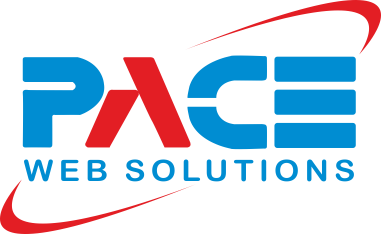In today’s digital landscape, having a strong online presence is crucial for businesses to succeed. Search Engine Optimization (SEO) plays a pivotal role in digital marketing by enhancing website visibility and driving organic traffic. In this guide, we will delve into the importance of SEO and its impact on website visibility.
Table of Contents
Importance of SEO in Digital Marketing:
Understanding SEO:
Defining SEO:
SEO is the process of optimizing a website to improve its visibility and rankings in search engine results pages (SERPs). It involves various techniques, including on-page optimization, off-page optimization, and technical SEO.
Key Components of SEO:
1. On-Page Optimization:
This focuses on optimizing elements within the website, such as content, meta tags, headers, and URLs. By incorporating relevant keywords and creating a user-friendly website structure, on-page optimization helps search engines understand and rank your content effectively.
2. Off-Page Optimization:
This involves activities outside your website, such as link building, social media marketing, and online reputation management. Off-page optimization helps establish your website’s authority, credibility, and popularity, which positively impacts search engine rankings.
3. Technical SEO:
Technical SEO ensures that search engines can crawl and index your website easily. It involves optimizing site speed, URL structure, mobile responsiveness, XML sitemaps, and robots.txt files. Technical SEO helps search engines understand your website’s structure and content more effectively
Importance of Keywords and Proper Website Structure:
Keywords are the foundation of SEO as they reflect the search intent of users. By conducting thorough keyword research and strategically incorporating them into your content, meta tags, and headings, you increase the likelihood of your website appearing in relevant search results. Additionally, organizing your website with a logical structure, clear navigation, and user-friendly URLs enhances user experience and search engine visibility.
Benefits of SEO:
1. Ranking Higher in Search Engine Results:
Higher search engine rankings result in increased visibility, credibility, and organic traffic. Users are more likely to click on websites that appear at the top of the search results, leading to greater exposure and potential conversions.
2. Increased Organic Traffic, Brand Visibility, and Improved User Experience:
SEO focuses on delivering relevant and valuable content to users. By optimizing your website, you attract organic traffic from users actively searching for products or services related to your business. Improved rankings also lead to greater brand visibility, trust, and recognition. Furthermore, SEO techniques enhance the user experience by providing a seamless browsing experience, easy navigation, and fast-loading web pages.
SEO Techniques and Best Practices:
1. On-Page Optimization Techniques:
Keyword research helps identify target keywords that align with user search intent. By incorporating these keywords naturally into your content, meta tags (title tags, meta descriptions), and headings, you increase the relevance and visibility of your web pages.
2. Off-Page Optimization Techniques:
Building high-quality backlinks from reputable websites, engaging in social media marketing, and encouraging user-generated content to improve your website’s authority and visibility. Social signals, such as likes, shares, and comments, also indicate user engagement and contribute to improved search rankings.
Mobile SEO and Local SEO:
1. Significance of Mobile Optimization:
With the increasing use of mobile devices, optimizing your website for mobile is essential. Mobile-friendly design, responsive layouts, fast loading times, and intuitive navigation provide a positive user experience and contribute to higher search rankings.
2. Importance of Local SEO:
Local SEO helps businesses target customers in specific geographic locations. Optimizing your website for local search includes listing your business on Google My Business, ensuring consistent NAP (name, address, phone number) information across platforms, and incorporating location-specific keywords. This allows businesses to appear in local search results and attract nearby customers.
SEO Tools and Resources:
1. Popular SEO Tools:
Tools like Google Keyword Planner, SEMrush, Moz, Ahrefs, and Yoast SEO can greatly assist in keyword research, competitor analysis, website auditing, backlink analysis, and tracking performance metrics. These tools provide valuable insights and data to optimize your SEO strategies effectively.
2. Useful Online Resources and SEO Communities:
Staying updated with the latest SEO trends and practices is crucial. Online resources like Moz’s blog, Search Engine Journal, and Search Engine Land provide in-depth articles, guides, and case studies to help you enhance your SEO knowledge. Engaging in SEO communities, such as forums like Reddit’s r/SEO or participating in industry-related webinars and conferences, allows you to connect with experts and exchange ideas.
In today’s competitive digital landscape, SEO is an indispensable component of any successful digital marketing strategy. By optimizing your website for search engines, you can significantly improve visibility, attract organic traffic, and enhance brand visibility. Implementing SEO techniques, such as keyword research, on-page and off-page optimization, mobile optimization, and local SEO, will drive sustainable results and contribute to the growth of your online presence. Embrace the power of SEO and leverage its benefits to stay ahead in the digital marketing game. Start implementing SEO techniques today and witness the transformative impact it can have on your website’s visibility, organic traffic, and overall success.


Leave A Comment